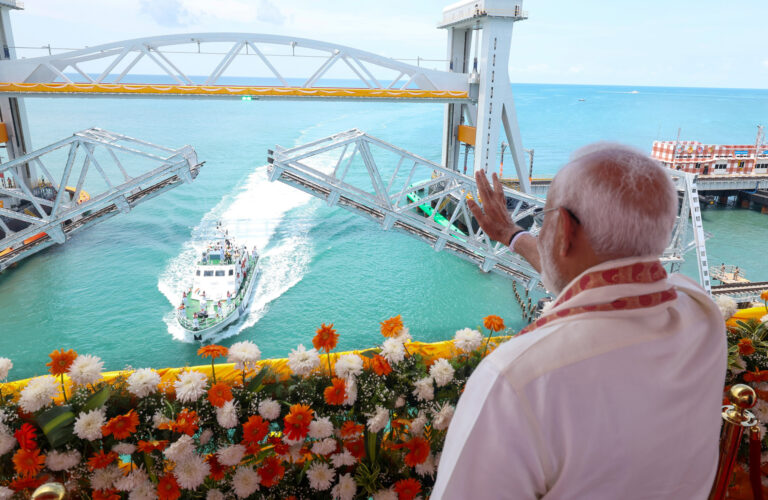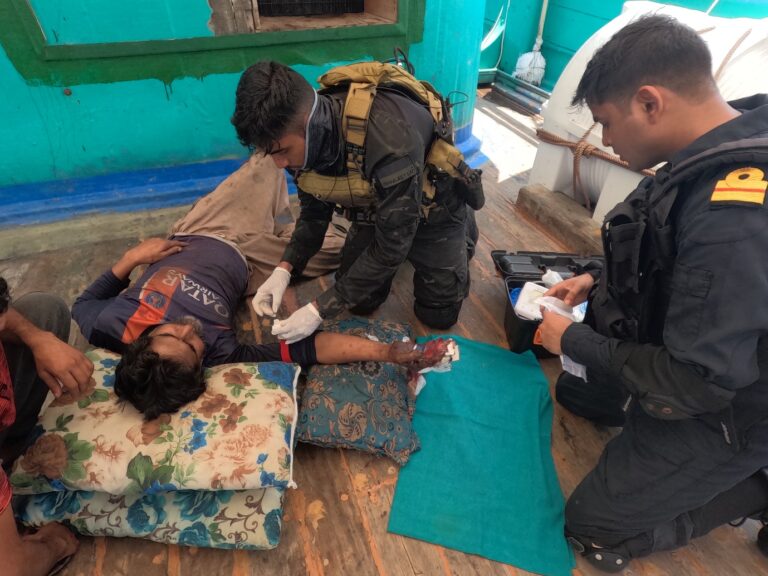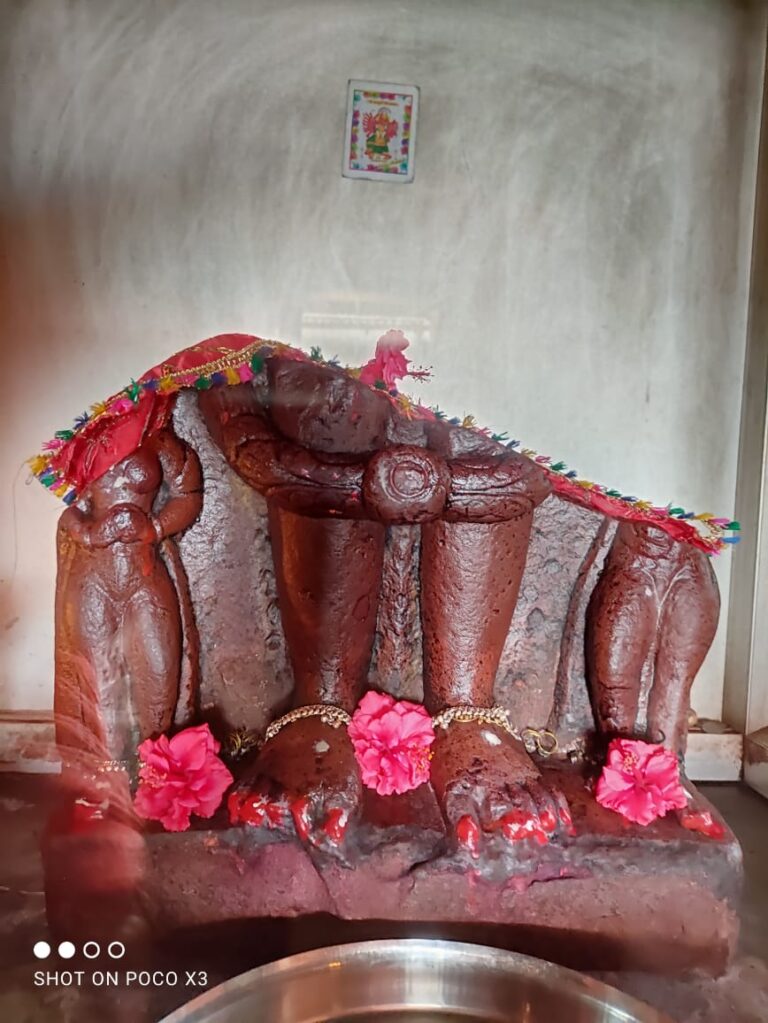
Geneva: There was a triple whammy for India at World Trade Organization (WTO) as three different Panels appointed by the Dispute Settlement Body (DSB) of the WTO rejected India’s plea on its tech tariffs on April 17, 2023. The WTO circulated these Panel Reports on April 17, 2023, in the cases brought by the European Union, Japan and Chinese Taipei in “India — Tariff Treatment on Certain Goods in the Information and Communications Technology Sector” (DS582), “India — Tariff Treatment on Certain Goods” (DS584) and “India — Tariff Treatment on Certain Goods in the Information and Communications Technology Sector” (DS588) respectively.
“India — Tariff Treatment on Certain Goods in the Information and Communications Technology Sector” (DS582)
In the complaint by the European Union regarding “India — Tariff Treatment on Certain Goods in the Information and Communications Technology Sector” (DS582), the EU, on 2 April 2019, requested consultations with India concerning the tariff treatment that India accords to certain goods in the information and communications technology sector.
The European Union claimed that the measures appear to be inconsistent with Articles II:1(a) and II:1(b) of the GATT 1994. It challenged the tariff treatment that India accorded to certain information communications technology (ICT) products falling under the following tariff items of India’s WTO Schedule: 8504.40 ex02; 8517.12; 8517.61; 8517.62; 8517.70 ex01, ex02, and ex03; 8518.30 ex01; and 8544.42 ex01. The EU further claimed that these measures lead, or led at the time of the Panel’s establishment, to the application of ordinary customs duties in excess of those set forth in India’s Schedule of Concessions, and, therefore, are or were inconsistent with Articles II:1(a) and (b) of the GATT 1994.
On April 17, 2019, Singapore and Chinese Taipei, requested to join the consultations. On April 18, 2019, Canada, Japan, Thailand and the United States requested to join the consultations, while on April 19, 2019, China requested to join the consultations. On February 17, 2020, the European Union requested the establishment of a Panel and at its meeting on June 29, 2020, the Dispute Settlement Body of the WTO established a Panel. Brazil, Canada, China, Indonesia, Japan, Korea, Norway, Pakistan, the Russian Federation, Singapore, Chinese Taipei, Thailand, Turkey, Ukraine and the United States reserved their third-party rights.
India argued that: (i) its binding tariff commitments are set forth in the Information Technology Agreement (ITA), and those commitments are static and did not change due to their incorporation into India’s WTO Schedule; (ii) pursuant to Article 48 of the Vienna Convention on the Law of Treaties (Vienna Convention), aspects of India’s WTO Schedule are invalid as a consequence of an error on the part of India during the transposition of its Schedule from the HS2002 to the HS2007; and (iii) the errors in India’s WTO Schedule are of a formal nature and were therefore capable of rectification pursuant to the 1980 Decision, such that the European Union’s objection to India’s proposed rectification of its Schedule is inconsistent with the requirements of the 1980 Decision. India also raised several arguments concerning the nature of the conditions attached to certain tariff treatments, as well as the tariff classification of certain products.
However, the Panel rejected India’s assertions that its binding tariff commitments are set forth in the ITA and found that: (i) the ITA is not a covered agreement within the meaning of the WTO Agreement and the DSU, and (ii) the ITA is not the source of India’s legal obligations in these disputes. The Panel also held that India’s WTO tariff commitments are not static in nature.
The Panel further found that India did not satisfy the requirements of Article 48 of the Vienna Convention. The panel accepted in good faith India’s argument that at the time of the transposition of its HS2002 Schedule into its HS2007 Schedule, India had assumed that the scope of its WTO commitments was limited to the scope of its ITA undertakings and that the scope of those tariff commitments would not be expanded through the HS2007 transposition process. However, the Panel found that India had failed to demonstrate that this assumption constituted an essential basis of India’s consent to be bound by the certified Schedule. The Panel also found that India was put on notice of the possibility that its WTO tariff commitments in its HS2007 Schedule may have expanded from those set forth in its HS2002 Schedule, and similarly, that its WTO tariff commitments in its HS2007 Schedule may have expanded from those set forth in the ITA. Thus, even if Article 48 applied in WTO dispute settlement (which the Panel did not consider it necessary to address), the circumstances did not satisfy the requirements of Articles 48(1) and (2) of the Vienna Convention.
The Panel further declined to make findings on India’s request that the panel needs to find that the European Union violated paragraph 3 of the 1980 decision by raising objections to India’s requested rectification unfounded in law, and thereby impeded India’s rights to make a formal rectification to its schedule of concessions under the 1980 decision. The Panel found that India’s requests were claims, not affirmative defences, and therefore fell outside the panel’s terms of reference. The panel also considered that, even if it made findings on this issue, to the extent that there remained objections on record to India’s rectification request (including those by WTO Members who were not parties to this dispute), India’s WTO Schedule would remain unmodified, and the findings requested by India would not modify India’s WTO obligations as set forth in its WTO Schedule.
Thus, the Panel found that India’s WTO tariff commitments, for purposes of applying Articles II:1(a) and (b) of the GATT 1994, are set forth in its WTO Schedule.
Articles II:1(a) and (b) of the GATT 1994
The Panel found that:
- India’s tariff treatment of products falling under tariff items 8504.40 ex02, 8517.12, 8517.61, 8517.62, and 8517.70 ex01, ex02, and ex03 of India’s WTO Schedule is inconsistent with Article II:1(b), first sentence, because: (i) certain such products are subject to ordinary customs duties in excess of those set forth in India’s WTO Schedule; and (ii) certain such products are subject to ordinary customs duties in excess of those set forth in India’s WTO Schedule unless they satisfy certain conditions that are not set forth in that WTO Schedule. The Panel also found that India’s tariff treatment of such products is less favourable than that provided in its WTO Schedule, such that India is acting inconsistently with Article II:1(a) of the GATT 1994.
- At the time of the Panel’s establishment, India’s tariff treatment of products falling under tariff items 8518.30 ex01 and 8544.42 ex01 was inconsistent with Article II:1(b), first sentence, because certain such products were subject to ordinary customs duties in excess of those set forth and provided in India’s WTO Schedule unless they satisfied certain conditions not set forth in that WTO Schedule. The Panel also found that India’s tariff treatment of such products was less favourable than that provided in its WTO Schedule, such that India was acting inconsistently with Article II:1(a) of the GATT 1994.
- As of 1 February 2022, India accords unconditional duty-free treatment to products falling under tariff items 8518.30 ex01; and 8544.42 ex01, in accordance with the terms of its WTO Schedule, and is therefore acting consistently with Article II:1(b), first sentence, of the GATT 1994. The Panel also found that by according to the commerce of the European Union treatment no less favourable than that provided for in its WTO Schedule, India’s tariff treatment of such products is consistent with Article II:1(a) of the GATT 1994.
 “Tariff Treatment on Certain Goods” (DS584)
“Tariff Treatment on Certain Goods” (DS584)
On May 10, 2019, Japan requested consultations with India regarding the tariff treatment that India allegedly accords to certain goods (telephones for cellular networks or for other wireless networks; base stations; machines for the reception, conversion and transmission or regeneration of voice, images or other data, including switching and routing apparatus; and parts of telephone sets and other apparatus for the transmission or reception of voice, images or other data).
Japan claimed that the measures at issue appear to be inconsistent with Articles II:1(a) and II:1(b) of the GATT 1994.
On May 15, 2019, the United States requested to join the consultations. On May 16, 2019, Chinese Taipei requested to join the consultations. On May 17, 2019, Canada and Singapore requested to join the consultations. On May 21, 2019, China, the European Union and Thailand requested to join the consultations.
Japan challenged the tariff treatment that India accorded to certain information communications technology (ICT) products falling under the following tariff items of India’s First Schedule: 8517.12.11, 8517.12.19, 8517.12.90, 8517.61.00, 8517.62.90, 8517.70.10 and 8517.70.90.
Japan claimed that these measures lead, or led at the time of the Panel’s establishment, to the application of ordinary customs duties in excess of those set forth in India’s Schedule of Concessions, and, therefore, are or were inconsistent with Articles II:1(a) and (b) of the GATT 1994. Japan also claimed that even where India unconditionally exempts certain products from customs duties, India acts inconsistently with Article II:1(a) because India grants those exemptions through customs notifications which are subject to the possibility of repeal at any time, thus creating a lack of foreseeability for traders.
India argued that: (i) its binding tariff commitments are set forth in the Information Technology Agreement (ITA), and those commitments are static and did not change due to their incorporation into India’s WTO Schedule; (ii) pursuant to Article 48 of the Vienna Convention on the Law of Treaties (Vienna Convention), aspects of India’s WTO Schedule are invalid as a consequence of an error on the part of India during the transposition of its Schedule from the HS2002 to the HS2007; and (iii) the errors in India’s WTO Schedule are of a formal nature and were therefore capable of rectification pursuant to the 1980 Decision, such that Japan’s objection to India’s proposed rectification of its Schedule is inconsistent with the requirements of the 1980 Decision. India also raised several arguments concerning the nature of the conditions attached to certain tariff treatments, as well as the tariff classification of certain products. India further argued that pursuant to the India-Japan Comprehensive Economic Partnership Agreement (CEPA), and the implementing notification thereof, India exempts from ordinary customs duties the products at issue when originating from Japan, and therefore accords to products of Japan tariff treatment that is consistent with India’s duty-free tariff commitments set forth in its WTO Schedule.
General issues concerning India’s WTO tariff commitments
The Panel set up by the Dispute Settlement Body rejected India’s assertions that its binding tariff commitments are set forth in the ITA and found that: (i) the ITA is not a covered agreement within the meaning of the WTO Agreement and the Dispute Settlement Understanding(DSU), and (ii) the ITA is not the source of India’s legal obligations in these disputes. The Panel also held that India’s WTO tariff commitments are not static in nature.
The Panel further found that India did not satisfy the requirements of Article 48 of the Vienna Convention. The Panel accepted in good faith India’s argument that at the time of the transposition of its HS2002 Schedule into its HS2007 Schedule, India had assumed that the scope of its WTO commitments was limited to the scope of its ITA undertakings and that the scope of those tariff commitments would not be expanded through the HS2007 transposition process. However, the Panel found that India had failed to demonstrate that this assumption constituted an essential basis of India’s consent to be bound by the certified Schedule. The Panel also found that India was put on notice of the possibility that its WTO tariff commitments in its HS2007 Schedule may have expanded from those set forth in its HS2002 Schedule, and similarly, that its WTO tariff commitments in its HS2007 Schedule may have expanded from those set forth in the ITA. Thus, even if Article 48 applied in WTO dispute settlement (which the Panel did not consider it necessary to address), the circumstances did not satisfy the requirements of Articles 48(1) and (2) of the Vienna Convention.
The Panel further declined to make findings on India’s request that the Panel find that Japan violated paragraph 3 of the 1980 Decision by raising objections to India’s requested rectification unfounded in law, and thereby impeded India’s rights to make a formal rectification to its schedule of concessions under the 1980 Decision. The Panel found that India’s requests were claims, not affirmative defences, and therefore fell outside the Panel’s terms of reference. The Panel also considered that, even if it made findings on this issue, to the extent that there remained objections on record to India’s rectification request (including those by WTO Members who were not parties to this dispute), India’s WTO Schedule would remain unmodified, and the findings requested by India would not modify India’s WTO obligations as set forth in its WTO Schedule.
Thus, the Panel found that India’s WTO tariff commitments, for purposes of applying Articles II:1(a) and (b) of the GATT 1994, are set forth in its WTO Schedule.
Articles II:1(a) and (b) of the GATT 1994
The Panel found that:
- India’s tariff treatment of products falling under tariff items 8517.12.11 and 8517.12.19 of India’s First Schedule at the time of the Panel’s establishment, and which presently fall under tariff items 8517.13.00 and 8517.14.00 of India’s First Schedule, is inconsistent with Article II:1(b), first sentence because such products are subject to ordinary customs duties in excess of those set forth in India’s WTO Schedule. The Panel also found that India’s tariff treatment of such products is less favourable than that provided in its WTO Schedule, such that India is acting inconsistently with Article II:1(a) of the GATT 1994.
- India’s tariff treatment of products falling under tariff items 8517.61.00 and 8517.62.90 of India’s First Schedule is inconsistent with Article II:1(b), first sentence, because such products are subject to ordinary customs duties in excess of those set forth in India’s WTO Schedule. The Panel also found that India’s tariff treatment of such products is less favourable than that provided in its WTO Schedule, such that India is acting inconsistently with Article II:1(a) of the GATT 1994.
- India’s tariff treatment of products falling under tariff items 8517.70.10 and 8517.70.90 of India’s First Schedule at the time of the Panel’s establishment, and which presently fall under tariff items 8517.71.00, 8517.79.10, and 8517.79.90 of India’s First Schedule, is inconsistent with Article II:1(b), first sentence, because: (i) certain such products are subject to ordinary customs duties in excess of those set forth in India’s WTO Schedule; and (ii) certain such products are subject to ordinary customs duties in excess of those set forth in India’s WTO Schedule unless they satisfy certain conditions that are not set forth in that WTO Schedule. The Panel also found that India’s tariff treatment of such products is less favourable than that provided in its WTO Schedule, such that India is acting inconsistently with Article II:1(a) of the GATT 1994.
- India accords unconditional duty-free treatment to products falling under tariff item 8517.12.90 of India’s First Schedule at the time of the Panel’s establishment, and which presently fall under tariff item 8517.14.00 of India’s First Schedule, in accordance with the terms of its WTO Schedule, and is therefore acting consistently with Article II:1(b), the first sentence of the GATT 1994. The Panel also found that by according to the commerce of Japan treatment no less favourable than that provided in its WTO Schedule, India’s tariff treatment of such products is consistent with Article II:1(a) of the GATT 1994.
- Japan failed to demonstrate that, even where India accords products at issue treatment that is consistent with Article II:1(b) of the GATT 1994, the measures at issue in this dispute accord treatment less favourable than that set forth in India’s WTO Schedule, inconsistent with Article II:1(a) of the GATT 1994, on the ground that India’s customs notifications lack foreseeability or predictability, thus affecting conditions of competition for traders.
- India failed to establish that Notification No. 69/2011 implementing the CEPA brings India into compliance with its WTO obligations pursuant to Articles II:1(a) and (b) of the GATT 1994. The Panel found that for products of Japan to access duty-free treatment as set forth in India’s WTO Schedule, they must satisfy preferential rules of origin which are not set forth in that Schedule, such that this notification does not accord unconditional duty-free treatment to the products at issue, and therefore does not bring India into consistency with its obligations under Articles II:1(a) and (b) of the GATT 1994.
“Tariff Treatment on Certain Goods in the Information and Communications Technology Sector” (DS588)
On September 2, 2019, Chinese Taipei requested consultations with India regarding the tariff treatment that India accords to certain information and communications technology goods.
Chinese Taipei claimed that the measures appear to be inconsistent with Articles II:1(a) and II:1(b) of the GATT 1994.
On September 13, 2019, Japan requested to join the consultations. On September 17, 2019, the United States requested to join the consultations. On September 18, 2019, Singapore requested to join the consultations. On September 19, 2019, Canada requested to join the consultations. On September 25, 2019, the European Union requested to join the consultations.
On March 24, 2020, Chinese Taipei requested the establishment of a panel. At its meeting on June 29, 2020, the DSB deferred the establishment of a panel.
At its meeting on July 29, 2020, the DSB established a panel. Brazil, Canada, China, the European Union, Indonesia, Japan, Korea, Norway, Pakistan, the Russian Federation, Singapore, Thailand, Turkey, Ukraine, the United Kingdom and the United States reserved their third-party rights.
Chinese Taipei challenged the tariff treatment that India accorded to certain information communications technology (ICT) products falling under the following tariff items of India’s WTO Schedule: 8517.12; 8517.61; 8517.62; 8517.70 ex01, ex02, and ex03; and 8518.30 ex01.
Chinese Taipei claimed that these measures lead, or led at the time of the Panel’s establishment, to the application of ordinary customs duties in excess of those set forth in India’s Schedule of Concessions, and, therefore, are or were therefore inconsistent with Articles II:1(a) and (b) of the GATT 1994.
India argued that: (i) its binding tariff commitments are set forth in the Information Technology Agreement (ITA), and those commitments are static and did not change due to their incorporation into India’s WTO Schedule; (ii) pursuant to Article 48 of the Vienna Convention on the Law of Treaties (Vienna Convention), aspects of India’s WTO Schedule are invalid as a consequence of an error on the part of India during the transposition of its Schedule from the HS2002 to the HS2007; and (iii) the errors in India’s WTO Schedule are of a formal nature and were therefore capable of rectification pursuant to the 1980 Decision, such that Chinese Taipei’s objection to India’s proposed rectification of its Schedule is inconsistent with the requirements of the 1980 Decision. India also raised several arguments concerning the nature of the conditions attached to certain tariff treatments, as well as the tariff classification of certain products.
General issues concerning India’s WTO tariff commitments
- The Panel rejected India’s assertions that its binding tariff commitments are set forth in the ITA, and found that: (i) the ITA is not a covered agreement within the meaning of the WTO Agreement and the DSU; and (ii) the ITA is not the source of India’s legal obligations in these disputes. The Panel also held that India’s WTO tariff commitments are not static in nature.
- The Panel further found that India did not satisfy the requirements of Article 48 of the Vienna Convention. The Panel accepted in good faith India’s argument that at the time of the transposition of its HS2002 Schedule into its HS2007 Schedule, India had assumed that the scope of its WTO commitments was limited to the scope of its ITA undertakings and that the scope of those tariff commitments would not be expanded through the HS2007 transposition process. However, the Panel found that India had failed to demonstrate that this assumption constituted an essential basis of India’s consent to be bound by the certified Schedule. The Panel also found that India was put on notice of the possibility that its WTO tariff commitments in its HS2007 Schedule may have expanded from those set forth in its HS2002 Schedule, and similarly, that its WTO tariff commitments in its HS2007 Schedule may have expanded from those set forth in the ITA. Thus, even if Article 48 applied in WTO dispute settlement (which the Panel did not consider it necessary to address), the circumstances did not satisfy the requirements of Articles 48(1) and (2) of the Vienna Convention.
- The Panel further declined to make findings on India’s request that the Panel find that Chinese Taipei violated paragraph 3 of the 1980 Decision by raising objections to India’s requested rectification unfounded in law, and thereby impeded India’s rights to make a formal rectification to its schedule of concessions under the 1980 Decision. The Panel found that India’s requests were claims, not affirmative defences, and therefore fell outside the Panel’s terms of reference. The Panel also considered that, even if it made findings on this issue, to the extent that there remained objections on record to India’s rectification request (including those by WTO Members who were not parties to this dispute), India’s WTO Schedule would remain unmodified, and the findings requested by India would not modify India’s WTO obligations as set forth in its WTO Schedule.
- Thus, the Panel found that India’s WTO tariff commitments, for purposes of applying Articles II:1(a) and (b) of the GATT 1994, are set forth in its WTO Schedule.
Articles II:1(a) and (b) of the GATT 1994
The Panel found that:
- India’s tariff treatment of products falling under tariff items 8517.12, 8517.61, 8517.62, and 8517.70 ex01, ex02, and ex03 of India’s WTO Schedule is inconsistent with Article II:1(b), first sentence, because: (i) certain such products are subject to ordinary customs duties in excess of those set forth in India’s WTO Schedule; and (ii) certain such products are subject to ordinary customs duties in excess of those set forth in India’s WTO Schedule unless they satisfy certain conditions that are not set forth in that WTO Schedule. The Panel also found that India’s tariff treatment of such products is less favourable than that provided in its WTO Schedule, such that India is acting inconsistently with Article II:1(a) of the GATT 1994.
- At the time of the Panel’s establishment, India’s tariff treatment of products falling under tariff item 8518.30 ex01 was inconsistent with Article II:1(b), first sentence, because certain such products were subject to ordinary customs duties in excess of those set forth and provided in India’s WTO Schedule unless they satisfied certain conditions not set forth in that WTO Schedule. The Panel also found that India’s tariff treatment of such products was less favourable than that provided in its WTO Schedule, such that India was acting inconsistently with Article II:1(a) of the GATT 1994.
- As of 1 February 2022, India accords unconditional duty-free treatment to products falling under tariff items 8518.30 ex01, in accordance with the terms of its WTO Schedule, and is therefore acting consistently with Article II:1(b), first sentence, of the GATT 1994. The Panel also found that by according to the commerce of Chinese Taipei treatment no less favourable than that provided for in its WTO Schedule, India’s tariff treatment of such products is consistent with Article II:1(a) of the GATT 1994.
– global bihari bureau





